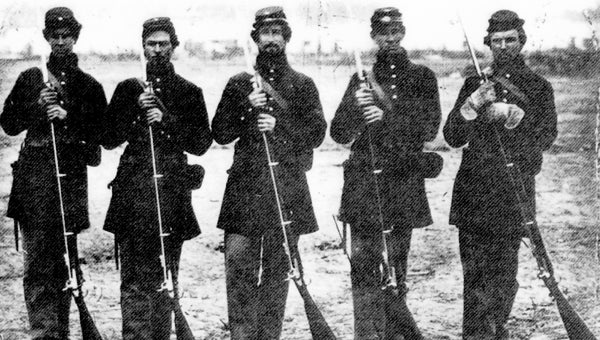Friends and Foes
Published 9:40 pm Thursday, April 25, 2013
To mark its 150th anniversary, through May 4, the Suffolk News-Herald is featuring a multi-part series by Suffolk historian Kermit Hobbs detailing the 23-day Siege of Suffolk.
Part 11: Fraternizing with the enemy
By Kermit Hobbs
Special to the News-Herald
In Suffolk, just as in other theaters of the war, one of the difficulties faced by the officers of both sides was preventing the enlisted men from building friendships with their counterparts in the opposing army.
But as the days of the Siege of Suffolk wore on through the spring of 1863, and the two sides had “felt each other out,” the men on the front lines began to reduce their belligerence toward each other. As early as April 18, the spirits there had changed, as Henry Ingalls wrote in his diary: “All quiet. Our pickets exchanged papers this afternoon with the rebs.”
In different places along the lines, pickets from the two sides agreed not to fire on each other until a certain time or unless the other attacked them. At the end of such unofficial truces, a commonly repeated phrase was, “Get back in your hole, Yank (or Reb); it’s time to start shooting again.”
One interesting incident recalled after the war by a Confederate veteran from Alabama illustrates what could happen between soldiers of opposing armies.
“While our army was around Suffolk, Va., two companies of the 11th Mississippi Infantry were placed on picket in trenches in sight of Suffolk and the Federal forces. Early in the day one of our boys called ‘Yank!’ and, receiving a prompt answer, acquiesced in the request that there be no firing on the line during that day. One of the boys, Jerry Gage, proposed to exchange papers, holding one up in his hands. Mr. Yank said all right and started toward our line with one in his hand. Jerry went to meet him, and another friend and another, and so on until our whole picket force had left the pits. There was a lake [probably Lake Kilby] about halfway between us; and when we got there, and the other Yanks who had left their pits, we found a Yank with a skiff, who invited us to go over to their camp, which was in sight. We accepted the invitation, and he put us across.
“By this time a big crowd of Yanks were around us, some proposing to make peace, some swapping buttons and other things; and the proposition was made to some of the boys to go up town and have a game of poker. We were having a big time until a Yankee officer came rushing down, very much excited, and yelled out, “What does all this mean?” He said the like of this was never heard of; and if the crowd did not disperse immediately, the batteries would be opened on it. He refused to allow the skiff to cross the lake, and I thought we were going up for sure; but another officer, standing near us remarked, “Boys, don’t pay any attention to that d— fool. They know better than to fire into their own men. We will see that none of you are harmed and are put back on your side of the lake.
“So we all shook hands, and with a good-by and good luck, (we) were put safely across. Not a gun was fired during the whole day. We went back into our pits, and after dark were called in and marched the whole night, evacuating that area.”
Sunday: Part 12 — The lighter side of war







